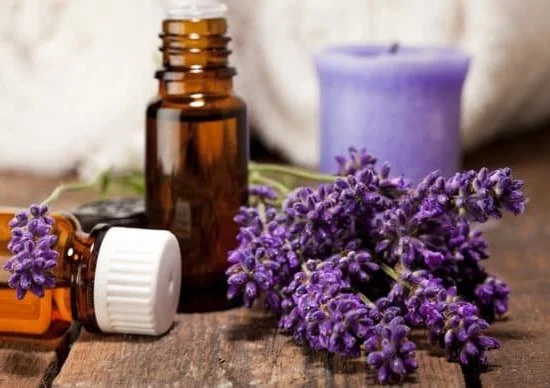Aromatherapy, a form of alternative medicine, has been gaining popularity in recent years for its potential health benefits. Derived from the use of essential oils, aromatherapy is believed to enhance physical and mental well-being by harnessing the power of scent. Its origins can be traced back to ancient civilizations such as Egypt, China, and India, where plants were used for their healing properties.
Aromatherapy involves the use of concentrated plant extracts, commonly known as essential oils, which are derived from various parts of plants such as leaves, flowers, bark, or roots. These essential oils are then used in a variety of ways to promote relaxation, improve mood, alleviate stress, and address specific health concerns. They can be diffused into the air through a diffuser or applied topically with carrier oils during massages.
The principle behind aromatherapy lies in how the scent molecules in essential oils interact with receptors in our brain and stimulate certain physiological responses. When we inhale these aroma molecules, they travel through our olfactory system and trigger reactions that can affect our emotions and overall well-being. Some essential oils are known for their calming effects on the nervous system, while others have stimulating or invigorating properties.
By understanding the origins and basics of aromatherapy, we can delve deeper into its potential benefits and explore how it may help with conditions such as stress relief or pain management. The next sections will provide valuable insights into scientific evidence supporting aromatherapy’s effectiveness and guide readers in integrating this practice into their daily routines for improved health and wellness.
The science behind aromatherapy
Aromatherapy has been practiced for centuries and is rooted in ancient traditions. The science behind aromatherapy lies in the interactions between essential oils and the body and mind. Essential oils are concentrated extracts derived from plants, containing their natural fragrance and therapeutic properties.
When essential oils are inhaled or applied to the skin, they interact with the olfactory system and the limbic system in the brain. The olfactory system is responsible for our sense of smell, while the limbic system controls emotions, memories, and behaviors. These interactions can have a profound impact on our physical and mental well-being.
The molecules of essential oils are volatile and easily evaporate into the air. When we inhale these molecules, they enter our nasal passages and bind to odor receptors. This stimulates a response in the limbic system, resulting in various physiological effects such as relaxation, pain relief, improved mood, or increased energy.
In addition to inhalation, essential oils can also be absorbed through the skin. When essential oils are applied topically, they penetrate the skin’s barrier and enter the bloodstream. From there, they can travel to different parts of the body and exert their therapeutic effects.
To fully understand how essential oils interact with the body and mind, it’s important to delve into their chemical composition. Each essential oil contains a unique combination of chemical constituents that contribute to its specific properties. For example, lavender oil contains linalool and linalyl acetate which are known for their calming effects on both mind and body.
Overall, understanding the science behind aromatherapy provides insight into how it can influence our well-being on multiple levels. Whether through inhalation or topical application, essential oils have been shown to have a direct impact on our physical health as well as our emotional state. By harnessing this knowledge, individuals can make informed decisions about incorporating aromatherapy into their daily routines to enhance their overall wellness.
Understanding the potential benefits of aromatherapy
Aromatherapy has gained popularity in recent years as a holistic approach to promoting physical and mental well-being. By using essential oils derived from plants, aromatherapy aims to enhance the body’s natural healing processes and provide a range of potential benefits. From stress relief to pain management, there are various ways in which aromatherapy can positively impact overall health.
Stress Relief
one of the most common reasons people turn to aromatherapy is for stress relief. Certain essential oils such as lavender, chamomile, and bergamot have been known to promote relaxation and reduce anxiety levels. When these oils are inhaled or applied topically, they can have a calming effect on the nervous system, helping individuals unwind and find solace amidst their daily stresses.
Pain Management
Another potential benefit of aromatherapy is its ability to assist with pain management. Essential oils like peppermint and eucalyptus contain analgesic properties that can help alleviate headaches, muscle aches, and joint pain. These oils work by stimulating blood flow and reducing inflammation in affected areas. The soothing scent of certain essential oils like lavender may also divert attention away from pain signals, providing temporary relief.
Mood Enhancement
Aromatherapy has also shown promise in improving mood and emotional well-being. Certain scents such as citrus or rosemary are believed to boost energy levels and act as natural antidepressants. Inhaling these uplifting scents can provide an immediate mood boost and increase feelings of positivity and motivation.
While more research is needed to fully understand the mechanisms behind the potential benefits of aromatherapy, it has become an increasingly popular complementary therapy for those seeking natural solutions for stress relief, pain management, and mood enhancement. It is important to note that individual responses may vary depending on factors such as personal preferences and overall health conditions.
For those considering incorporating aromatherapy into their wellness routines, it is advisable to consult with a qualified aromatherapist or healthcare professional to determine the most suitable essential oils and methods of use for their specific needs.
Examining the research
When it comes to determining the effectiveness of aromatherapy, numerous studies have been conducted to shed light on its benefits. These studies aim to explore the potential therapeutic properties of essential oils and their impact on various health conditions. While some research suggests that aromatherapy can be beneficial, it is important to critically examine the findings before drawing definitive conclusions.
One area of study in which aromatherapy has shown promising results is in managing stress and anxiety. A 2017 review published in the Journal of Clinical Medicine found that certain essential oils, such as lavender and chamomile, have been shown to reduce stress levels and promote relaxation. Another study published in the Complementary Therapies in Clinical Practice journal reported that aromatherapy massage using a blend of essential oils was effective in reducing anxiety among patients with surgical trauma.
In addition to stress relief, aromatherapy has also been investigated for its potential pain-relieving properties. A systematic review published in Pain Management Nursing examined various clinical trials and concluded that aromatherapy massage was effective in alleviating pain associated with conditions such as arthritis and chronic back pain. However, it is worth noting that further research is still needed to fully understand the mechanisms behind these effects and to establish clear guidelines for usage.
While there is growing evidence supporting the benefits of aromatherapy, it is important to approach these studies with caution due to limitations such as small sample sizes or methodological inconsistencies. Additionally, individual responses to different essential oils may vary, making it necessary for more personalized approaches in treatment. Overall, while research suggests that aromatherapy can be effective for certain conditions, further well-designed studies are needed for a comprehensive understanding of its true therapeutic potential.
Exploring different methods of aromatherapy
Aromatherapy offers a variety of methods for individuals to experience and benefit from the therapeutic properties of essential oils. One popular method is through the use of diffusers, which disperse essential oil molecules into the air for inhalation. Diffusers come in various types, such as ultrasonic diffusers, nebulizing diffusers, heat diffusers, and evaporative diffusers.
Ultrasonic diffusers are one of the most common types and work by using ultrasonic vibrations to create a fine mist that spreads the essential oil particles throughout the room. This method not only provides an aromatic ambiance but also adds moisture to the air, making it beneficial for those with respiratory issues or dry skin.
Nebulizing diffusers, on the other hand, do not require water and instead utilize pressurized air to atomize the essential oil into small particles that can be easily inhaled. This method is often preferred by individuals seeking more potent and concentrated aromatherapy benefits.
Heat diffusers use heat to naturally evaporate the essential oils into the surrounding environment. While this method may be less efficient at preserving some of the delicate therapeutic components found in certain oils, it is still a widely used technique due to its simplicity and affordability.
Evaporative diffusers rely on airflow to help distribute scents from an essential oil-soaked pad or filter. The evaporation process causes volatile molecules in the oils to disperse into the air.
Another popular method is aromatherapy massage, where diluted essential oils are applied topically during a massage session. The combination of gentle touch and inhalation of scent creates a multi-sensory experience that enhances relaxation and promotes overall well-being.
Inhalation is a simple yet effective way to experience aromatherapy benefits. Direct inhalation involves applying a few drops of an essential oil onto a tissue or handkerchief and inhaling deeply. Alternatively, steam inhalation can be achieved by adding a few drops of essential oil to hot water and covering the head with a towel to create a tent-like enclosure, allowing for inhalation of the aromatic steam.
Overall, the method you choose will depend on personal preference, desired effects, and convenience. It may be beneficial to experiment with different methods to find what works best for you. Remember to always follow safety guidelines when using essential oils and consult a healthcare professional if you have any underlying health conditions or concerns.
| Method | Description |
|---|---|
| Diffusers | A device that disperses essential oils into the air for inhalation. |
| Aromatherapy Massage | The application of diluted essential oils during a massage session. |
| Inhalation | The act of inhaling essential oils directly or through steam. |
Aromatherapy for specific conditions
Aromatherapy has been used for centuries as a natural way to promote overall well-being and alleviate specific conditions. One area where aromatherapy has shown significant potential is in managing anxiety, depression, insomnia, and other related conditions.
Aromatherapy for Anxiety
Many individuals struggle with anxiety and find it difficult to relax and unwind. Aromatherapy can be a valuable tool in calming the mind and reducing feelings of anxiety. Some essential oils that have been found to be effective in this regard include lavender, chamomile, bergamot, and ylang-ylang. These oils can be diffused or applied topically through massage or inhalation techniques.
Aromatherapy for Depression
Depression is a complex condition that affects millions of people worldwide. While aromatherapy is not a substitute for professional treatment, it can be used as a complementary therapy to help manage symptoms. Essential oils like citrus scents, such as lemon and orange, have uplifting properties that can enhance mood and energize the mind. Additionally, floral scents like rose and geranium are often used to promote relaxation and emotional balance.
Aromatherapy for Insomnia
Insomnia can significantly impact an individual’s quality of life by causing difficulty falling asleep or staying asleep throughout the night. Aromatherapy can aid in improving sleep quality by creating a calm environment conducive to rest. Essential oils such as lavender, valerian root, roman chamomile, and clary sage are known for their sedative properties that help regulate sleep patterns. These oils can be diffused or added to bathwater before bedtime.
Incorporating aromatherapy into your daily routine can provide relief from these specific conditions when used alongside appropriate medical care. However, it is crucial to consult with a healthcare professional before incorporating aromatherapy into your treatment plan to ensure compatibility with any existing medications and to determine the safest methods of application.
Safety considerations
Proper usage of essential oils
When using aromatherapy, it is important to understand how to properly use essential oils to ensure safety and effectiveness. Essential oils are highly concentrated plant extracts, so they should never be applied directly to the skin without dilution. It is recommended to always use a carrier oil, such as jojoba oil or coconut oil, when applying essential oils topically. This helps to prevent irritation or allergic reactions.
Additionally, it is crucial to follow the recommended dosage for each essential oil. Different oils have different strengths and properties, so using too much may lead to adverse effects. Always start with a small amount and gradually increase if needed.
Potential risks of aromatherapy
While aromatherapy is generally considered safe when used correctly, there are some potential risks that need to be taken into consideration. Some essential oils can cause skin irritation or sensitization in certain individuals. It is important to perform a patch test before using any new essential oil on your skin.
Certain essential oils should also be avoided during pregnancy or by individuals with specific medical conditions such as asthma or epilepsy. For example, sage and rosemary should be avoided during pregnancy due to their potential uterine stimulant effects.
It is also worth mentioning that some individuals may develop an allergic reaction or experience respiratory difficulties when exposed to certain essential oils through inhalation. If any adverse reactions occur after using aromatherapy, it is important to discontinue its use and seek medical advice if necessary.
Precautions for children and pets
Extra precautions should be taken when using aromatherapy around children and pets. Some essential oils can be toxic if ingested or dangerous if applied topically at high concentrations. Therefore, it is crucial to keep all bottles of essential oils out of reach from children and pets.
Furthermore, diffusing certain essential oils in a poorly ventilated area may pose a risk to children or pets with respiratory issues. It is best to consult with a healthcare professional or veterinarian before using aromatherapy around children or pets, and to choose essential oils that are safe for their specific needs.
By understanding the proper usage, potential risks, and precautions associated with aromatherapy, individuals can enjoy the benefits of this practice while ensuring their safety and well-being. It is always recommended to consult with a qualified aromatherapist or healthcare professional for personalized advice based on your specific health conditions and needs.
Real-life experiences
Aromatherapy has gained popularity among individuals seeking alternative forms of therapy for various conditions. Many people have reported positive experiences and benefits from using aromatherapy, leading to a growing interest in its efficacy. Personal testimonials and success stories offer valuable insights into the potential effectiveness of aromatherapy.
Individuals who have tried aromatherapy often share their experiences and the specific benefits they have received. These personal testimonials can provide useful information and give others a better understanding of how aromatherapy may work for them. For example, some individuals have reported that using essential oils such as lavender or chamomile before bed has helped them relax and improve the quality of their sleep.
Others have found that certain scents, like citrus or peppermint, can boost their mood and increase focus and productivity throughout the day. In addition to mental health benefits, individuals have also shared stories about how aromatherapy has helped them manage physical symptoms such as headaches or muscle tension.
It is important to note that personal testimonials are subjective experiences and may not be applicable to everyone. However, they can still provide anecdotal evidence that complements scientific research on aromatherapy. Hearing real-life stories of success can be motivating and encouraging for those considering trying this therapy for themselves.
| Testimonial | Benefits |
|---|---|
| “I have been struggling with anxiety for years, but ever since I started using lavender oil in my diffuser every evening, I’ve noticed a significant reduction in my anxiety levels. It’s become an essential part of my self-care routine now.” | Anxiety relief |
| “After experiencing chronic pain in my lower back, I decided to try aromatherapy as a complementary therapy. I received regular massages with essential oils like eucalyptus and frankincense, and I can confidently say that it has helped alleviate my pain and improve my overall well-being.” | Pain management |
| “I’ve always struggled with sleep issues, but ever since I started using a lavender linen spray before bed, I fall asleep faster and wake up feeling more refreshed. It’s like magic.” | Improved sleep |
Integrating aromatherapy into your daily routine
Integrating aromatherapy into your daily routine can be a simple and enjoyable way to enhance your overall well-being. Whether you want to reduce stress, improve sleep quality, or boost your mood, there are various techniques and recommended essential oils that can help beginners get started on their aromatherapy journey.
One of the easiest ways to incorporate aromatherapy into your daily routine is through the use of a diffuser. A diffuser disperses the aroma of essential oils into the air, allowing you to enjoy their therapeutic benefits throughout your home or workspace.
Simply add a few drops of your chosen essential oil to water in the diffuser and let it work its magic. Some popular essential oils for beginners include lavender for relaxation, peppermint for energy and focus, and lemon for a refreshing atmosphere.
Another technique for integrating aromatherapy into your daily routine is through massage. Essential oils can be diluted with carrier oils such as coconut or almond oil and applied topically during massage therapy. This allows the oils to penetrate the skin and enter the bloodstream, providing both physical and emotional benefits. For example, chamomile essential oil can help soothe muscles and relieve tension, while rosemary essential oil can promote circulation and alleviate pain.
Inhalation is another effective method of enjoying the benefits of aromatherapy on a daily basis. You can add a drop or two of essential oil onto a tissue or handkerchief and inhale deeply whenever you need an instant boost or relaxation. Another option is using personal inhalers specifically designed for aromatherapy purposes. These portable devices allow you to carry your favorite scent with you wherever you go and inhale it whenever needed.
For beginners in aromatherapy, it’s important to start with small amounts of essential oils as they are highly concentrated substances. It’s also advisable to consult with a qualified aromatherapist or healthcare professional before using any new essential oil, especially if you have specific health concerns or are pregnant. By taking the necessary safety precautions and exploring different techniques, you can easily integrate aromatherapy into your daily routine for a more balanced and enjoyable lifestyle.
Conclusion
In conclusion, aromatherapy has been shown to be an effective and beneficial complementary therapy for various conditions. The science behind aromatherapy reveals how essential oils interact with the body and mind, providing both physical and psychological benefits. From stress relief to pain management, the potential benefits of aromatherapy are vast.
Although there have been studies examining the effectiveness of aromatherapy, more research is needed to fully validate its therapeutic claims. However, many individuals have reported positive experiences with aromatherapy, sharing personal testimonials and success stories. These accounts highlight the potential of aromatherapy as a valuable addition to one’s wellness routine.
When considering aromatherapy, safety considerations must be taken into account. Proper usage and precautions are necessary to ensure that essential oils are used safely and effectively. It is important to consult with a qualified practitioner or do thorough research before incorporating aromatherapy into your daily routine.
Overall, aromatherapy offers a natural and holistic approach to health and well-being. Whether it is used for anxiety, depression, insomnia, or other conditions, aromatherapy has the potential to provide relief and enhance overall quality of life. By integrating different methods of aromatherapy into your daily routine and exploring recommended essential oils for beginners, you can harness the power of scent for improved physical and mental well-being.
Frequently Asked Questions
Does aromatherapy have any real benefits?
Aromatherapy has been found to offer real benefits for certain individuals. The inhalation of essential oils can stimulate the olfactory system, triggering various physiological and emotional responses within the body. This can lead to relaxation, stress reduction, improved sleep quality, and relief from common ailments such as headaches or muscle pain.
Additionally, certain essential oils have antimicrobial properties that can help fight off infections. However, it is important to note that aromatherapy is not a cure-all and its effectiveness may vary from person to person.
Does aromatherapy actually work for anxiety?
Aromatherapy has shown promise in alleviating symptoms of anxiety for some individuals. Certain essential oils like lavender, chamomile, or bergamot have calming properties and can induce feelings of relaxation when inhaled or applied topically.
These scents can help activate receptors in the brain associated with mood regulation, promoting a sense of calmness and reducing anxiety symptoms in some people. However, it should be noted that aromatherapy alone may not be enough to manage severe anxiety disorders and should be used in conjunction with other appropriate therapies recommended by healthcare professionals.
What are the disadvantages of aromatherapy?
While aromatherapy can offer benefits for many individuals, there are some potential disadvantages that need careful consideration. First, allergic reactions or sensitivities to specific essential oils are possible, which may cause skin irritation or respiratory issues in some individuals. It is crucial to perform patch tests before using new oils and consult with a healthcare professional if any adverse reactions occur.
Moreover, there is limited scientific evidence supporting the efficacy of aromatherapy for certain conditions, as research in this field is still ongoing. It’s also important to remember that aromatherapy should complement conventional medical treatments rather than replace them entirely if seeking relief from serious health concerns. Lastly, it’s essential to ensure proper usage and dilution of essential oils as undiluted or excessive application may lead to skin irritation or other adverse effects.

Are you looking for a natural way to improve your health and wellbeing?
If so, aromatherapy may be the answer for you.




